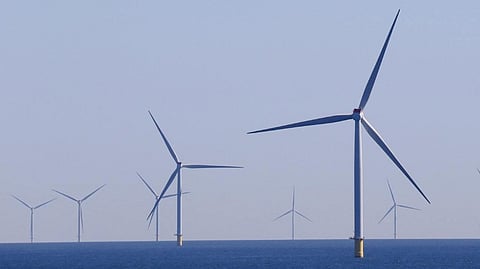

Shares in European renewable energy companies rose on Wednesday after the US Senate passed a revised budget bill the previous day which was more positive for wind power compared to an earlier version.
US President Donald Trump's "Big Beautiful Bill" makes it harder to develop wind and solar energy projects in the US by effectively phasing out renewable energy tax credits after 2026 if projects have not started construction.
In the senate's final version, projects will be able to use the lucrative credits if they begin construction before 2026. A previous version was based on when the projects enter service.
"Last-minute changes provide significantly better conditions for the wind industry compared to the previous draft," Sydbank analysts said in a research note.
Shares of Danish wind turbine manufacturer Vestas were up nine per cent, while German peer Nordex rose about 1.3 per cent.
Vestas and other renewable energy stocks in Europe have been sensitive to the news around the bill this year. The Americas accounted for about 39 per cent of Vestas' revenue last year.
Citi analysts said in a note that the revised text removes a 2027 "cliff" and essentially extends the US cycle into 2030.
"We see significant incentives for developers to place orders no later than H1 '26 in order to lock-in credits for in-service from 2028," they said.
Danish offshore wind developer Orsted and Portuguese renewable energy firm EDP Renovaveis were up 3.6 per cent and 1.8 per cent, respectively.
"With regard to our business...the current proposal has no impact on our projects currently under construction and offers investment security for these," German utility RWE said.
Shares in RWE, the world's second-largest developer of offshore wind farms, were up 0.2 per cent, while solar inverter maker SMA Solar jumped 10 per cent to its highest price since March.
(Reporting by Jesus Calero and Marleen Kaesebier in Gdansk; Additional reporting by Christoph Steitz; Editing by Milla Nissi-Prussak and Rachna Uppal)
